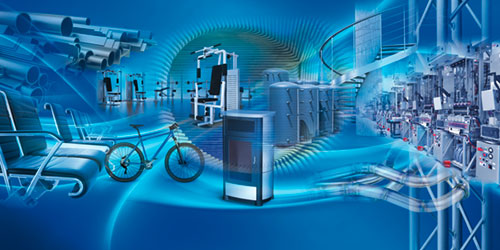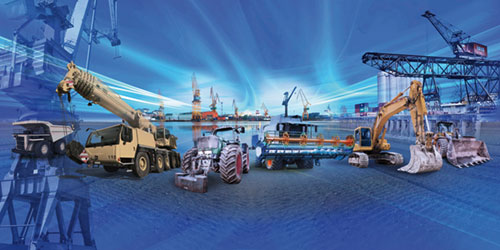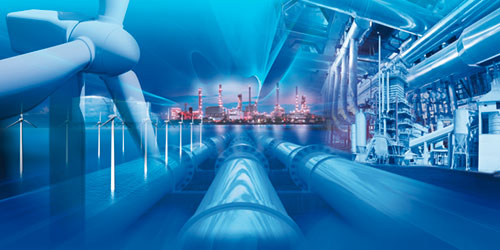Industries

Automotive and Transportation
Perfect appearance – highest safety and stability
Welds must fulfill the highest requirements in automobile manufacturing and transportation. The focus is on safety, appearance, and efficiency. Thick sheets are used for chassis frames, thin sheets and aluminum for lightweight construction body parts, high-strength and distortion-free steels for passenger compartments. ABICOR BINZEL offers vehicle manufacturers and their suppliers the complete range of joining technology solutions for manual, partially mechanized and automated welding processes.Show more 

General Fabrication
Versatile materials - adaptive welding processes
From pipe to office chairs to street lights to roller coasters – welding in an omnipresent part of daily life.The requirements for welders, processes and equipment are as varied as the range of applications. The material with its special features is the deciding factor for the welding process. ABICOR BINZEL offers optimum joining technology solutions for almost all materials and welding tasks - manual, mechanized or automated.Show more 

Shipyards and Offshore
Robust requirements – varied welding tasks
In the shipbuilding and offshore industry, the highest requirements are placed on welders and equipment. Weather influences are considered here more than any other industry. Special features of shipbuilding of offshoring include primed sheets, the lack of distortion of large segments, and coatable welding seams without reworking. Welders often work in tight spaces as well as forced positions with many position changes and have to cover large distances. ABICOR BINZEL offers tailor-made solutions for manual welding and partially mechanized welding as well as robot welding.Show more 

Structural
Stable connections – partially mechanised solutions
Welding in construction engineering often means the joining of simple or galvanized structural steel and aluminum. Welding is carried out in the production hall, on the construction site, in the lift shaft or on the bridge. The welding process is selected according to material and application. In manual welding, lightweight and ergonomically optimal torch technology makes the job easier and more productive. Partially mechanized and automated welding, for example prefabrication or subassembly, places particular requirements on the welding technology.Show more 

Heavy Fabrication
Demanding welding tasks – special equipment
High-performance and flexible welding equipment is required for heavy engineering, which optimally supports the welders at work. In this case, thick-walled parts, some of which are difficult to access in forced positions, must be welded manually. The welding seams here must be highly stress-resistant and fulfill the robust requirements. ABICOR BINZEL offers a wide selection of high-performance standard and special torches for manual and partially mechanized welding as well as special solutions for automatic welding, for example, in the serial manufacturing of assemblies.Show more 

Energy
Extreme loads – special welding solutions
Pipelines and tanks, windmills and turbines, solar collectors and incineration plants: The energy industry has more welding facets and needs now than ever before. Most of them require robust, secure welding seams. In addition to steel, special materials must be frequently welded, which meet particularly high demands on stability and safety. ABICOR BINZEL offers a wide range of high-performance and ergonomic welding equipment for manual, partially mechanized and automated welding processes.Show more 

Emerging applications
Implementing megatrends - use innovative joining techniques
Many technological developments have an effect on joining technology. Generative or additive manufacturing processes with metallic components require the use of special welding equipment. The production of memories for electric vehicles necessitates special laser and special joining procedures in micro and macro areas. ABICOR BINZEL offers suitable solutions for partially mechanized and automated production with innovative joining techniques, conventional steels and various special materials.Show more 
